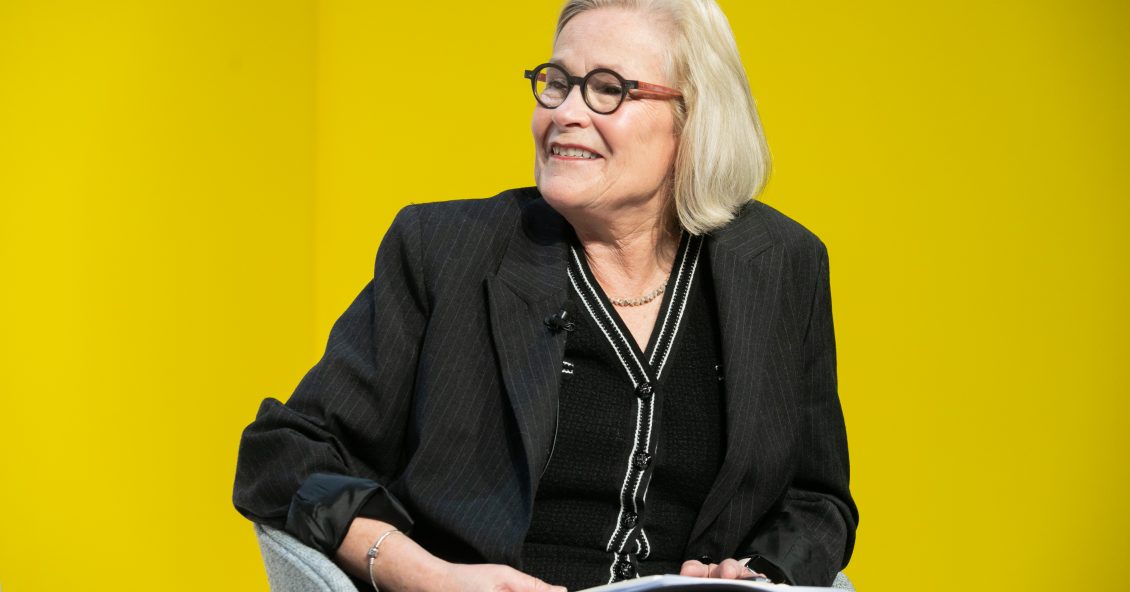Hoffman at OECD tech forum: We have to act now to shape the future we want to build
25.09.24
At the OECD’s Global Forum on Technology, UNI Global Union General Secretary Christy Hoffman emphasized the need for workers, unions and advocates for economic justice to act now to ensure that the benefits of AI are widely shared in the future. Drawing on both history and her own experiences, Hoffman made the point that the impact of technology depends on whether workers have a voice about its use, the regulatory and social environment and whether there is massive and sudden automation without the ability to reshape jobs in order to keep people at work.
She gave the example of the Luddites, commonly understood as enemies of progress, but who were actually a popular movement aiming to protect the jobs in their communities from replacement by mechanical looms. The movement did not succeed, in large part, because the workers had no political or organized power. Its leaders were executed and the communities were ravaged. Wages lagged behind economic growth for over a century.
But when “numerical control” tools were introduced into the unionized factory where Hoffman worked on a vertical turret lathe in the 1980s, the experience was quite different.
“Many of my almost all male co-workers feared a de-skilling of the job, but I was so happy to be relieved of the physical work. For me it was liberating,” Hoffman said.
“This technology was introduced into a context which rarely exists today, and especially not among workers most likely to be affected by AI, including many sectors that UNI represents. I had union representation. This meant that we were able to negotiate over any risks to safety, the implications for job security and a requirement for on-the-job training. I was not insecure about being replaced, because the new machine did not automate my job. It augmented my capacity. I knew that higher productivity could lead to higher wages for my co-workers and me. I had every incentive to make this technology a success. In fact, I was elected to be on the negotiating committee and negotiated my first new technology clause in 1982.
“Today workers everywhere are fearful about a looming replacement by AI, because employers have been publicly salivating about the big productivity boost which allegedly is in the pipeline. And most of the workers do not have a collective voice.
“It is said that in the long run, workers and society as a whole will always benefit from technology. But we know that the long run can indeed be very long, with immense suffering and misuse of tech along the way which can cause deep and irreparable harms… But hardship is not inevitable. We can shape the use of technology so as to maximize a shared benefit which allows workers dignity and a decent life.
“This means that we must favour technology which augments human capacity, rather than automates. Technology which creates new tasks to replace those which are eliminated by AI. This can be done in many ways, including direct interventions like wage subsidies funded by taxes on capital income, or other tax policies. We must offer incentives for companies to reskill or upskill their own work force -on the job -which will increase the incentive to keep people at work.
“We need labour policies which favour — even incentivise unionization — for example through co-determination or sectoral bargaining, through lowering the barriers to collective bargaining and requirements to consult with legitimate worker representatives before technology is adopted. This would enable unions to negotiate over health and safety, including mental health; to reimagine jobs so that even if some tasks are eliminated, others can be added and negotiate the fair distribution of the benefits of enhanced productivity.
“Although I think we overestimate the changes in the short term, we underestimate the longer-term impacts at work and the shifts in wealth and power on the horizon if we do nothing. So, whether the shift takes place in five years or 25, we must start our work to shape the future now to build the economy and society that we want.”
Other participants on the panel “Looking Back to Look Forward” were Ahmed N. Tantawy, a senior advisor in Egypt’s Ministry of Communications and Information Technology and Wendell Wallach, the co-director of the Carnegie Council for Ethics in International Affairs’ AI and Equality Initiative. It was moderated by Ben Brake, Director General of “Digital- and Data-Policy” for Germany’s Federal Ministry for Digital and Transport.
News


